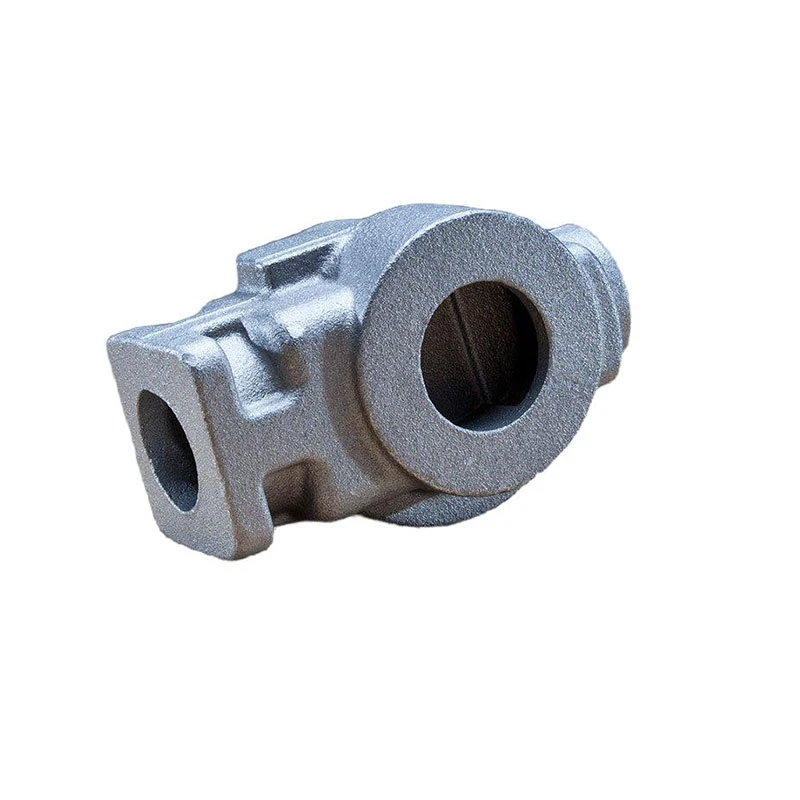sand cast aluminum alloys
Sand Cast Aluminum Alloys Properties, Applications, and Benefits
Sand casting is one of the oldest and most versatile metal casting processes, widely used in industries ranging from automotive to aerospace. Among the various materials that can be cast, aluminum alloys are particularly popular due to their excellent mechanical properties, lightweight nature, and corrosion resistance. This article delves into sand cast aluminum alloys, exploring their properties, applications, and the advantages they offer in various manufacturing scenarios.
Properties of Sand Cast Aluminum Alloys
Aluminum alloys used in sand casting typically fall into two broad categories wrought and cast alloys. The alloying elements in these materials can include copper, manganese, magnesium, silicon, and zinc, which influence the final properties of the cast product. Common aluminum alloys used in sand casting include A356 and A380.
One of the primary advantages of aluminum as a casting material is its low density, which results in lightweight components that do not compromise on strength. For instance, A356 aluminum alloy, primarily composed of silicon and magnesium, exhibits high ductility and strength, making it suitable for a range of structural applications. Additionally, the thermal and electrical conductivity of aluminum is superior to that of many other metals, which is crucial for applications involving heat exchange or electrical components.
The corrosion resistance of aluminum is another significant property, arising from the formation of a protective oxide layer when exposed to air. This makes sand cast aluminum alloys ideal candidates for outdoor applications where environmental exposure is a factor. Furthermore, these alloys can be easily anodized or coated, enhancing their durability and aesthetic appeal.
Applications of Sand Cast Aluminum Alloys
The versatility of sand cast aluminum alloys means they are found in an array of applications across various industries
1. Automotive Industry Aluminum sand castings are extensively used in the automotive sector for components such as engine blocks, transmission cases, and wheels. The lightweight nature of aluminum helps improve fuel efficiency while maintaining high performance.
2. Aerospace Industry The aerospace industry demands materials that can withstand high stress while being lightweight. Sand cast aluminum alloys are used in components like aircraft engine casings and structural elements due to their strength-to-weight ratio.
sand cast aluminum alloys

3. Marine Applications Given their excellent corrosion resistance, sand cast aluminum alloys are often used in marine applications, such as boat hulls, fittings, and other components that are constantly exposed to water.
4. Industrial Equipment Various industrial machinery and equipment benefit from the properties of aluminum alloys, including housings, brackets, and frames that require a combination of strength and weight savings.
5. Consumer Products Many household items, such as cookware and appliances, also utilize sand cast aluminum alloys for their durability, lightweight characteristics, and ease of manufacturing.
Benefits of Sand Casting Aluminum Alloys
Sand casting offers several advantages, particularly when working with aluminum alloys. The process allows for the production of complex shapes and large components that may be challenging to achieve with other casting methods. It is also cost-effective for low to mid-volume production runs, eliminating the need for expensive tooling.
Moreover, sand casting provides flexibility in design, enabling manufacturers to modify designs quickly in response to market demands. Alloying compositions can also be adjusted to tailor properties for specific applications, further enhancing the functionality of the cast parts.
Lastly, sand casting is compatible with recycled aluminum. The use of recycled materials not only helps reduce production costs but also minimizes environmental impact, making it a sustainable choice in modern manufacturing.
Conclusion
Sand cast aluminum alloys represent a dynamic and practical option for manufacturers across various sectors. With their excellent mechanical properties, versatility in applications, and cost-efficiency, they continue to be a favored choice for producing a wide range of components. As industries evolve, embracing sustainable practices and innovative technologies, the significance of sand cast aluminum alloys is likely to grow even further.
-
Precision Casting AI Solution with GPT-4-Turbo | Optimized QualityNewsAug.02,2025
-
Precision Sheet Metal Stamping Manufacturer | Fast & ReliableNewsAug.01,2025
-
OEM Sand Cast Pump Valve Fittings - Baoding Hairun Machinery And Equipment Trading Co., Ltd.NewsAug.01,2025
-
Custom OEM Impellers | High Efficiency & PrecisionNewsAug.01,2025
-
OEM Sand Cast Pump Valve Fittings - Baoding Hairun Machinery | Customization, Quality AssuranceNewsAug.01,2025
-
OEM Sand Cast Pump Valve Fittings - Baoding Hairun Machinery And Equipment Trading Co., Ltd.NewsAug.01,2025















